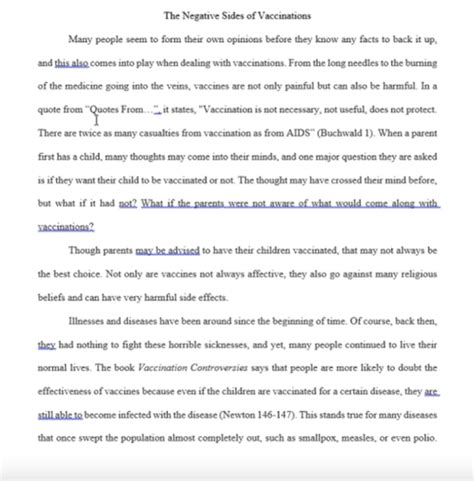Using the first-person pronoun “I” in a research paper has traditionally been considered unprofessional and subjective. However, in recent years, there has been a growing movement to allow the use of “I” in academic writing. Proponents of this movement argue that using “I” can make research papers more engaging, personal, and transparent.

There are a few things to keep in mind when using “I” in a research paper. First, it is important to use it sparingly. You don’t want your paper to sound like a personal narrative. Second, when you do use “I,” make sure it is clear that you are speaking from your own perspective and not making claims about the entire field.
Here are some examples of how you can use “I” effectively in a research paper:
- “I conducted a study of 100 students to investigate the effects of sleep deprivation on academic performance.”
- “I found that students who slept less than 6 hours per night had significantly lower GPAs than students who slept 7 or more hours per night.”
- “I believe that my findings have important implications for educators and policymakers.”
Using “I” in a research paper can be a powerful tool for engaging readers and sharing your unique perspective. However, it is important to use it sparingly and thoughtfully.
Benefits of Using “I” in a Research Paper
There are several benefits to using “I” in a research paper. First, it can help to make your paper more engaging and personal. Readers are more likely to connect with a paper that is written in a conversational style, and using “I” can help to create this type of connection.
Second, using “I” can help to make your paper more transparent. When you use “I,” you are explicitly stating that you are the one who conducted the research and drew the conclusions. This helps to build trust with readers and makes it clear that you are not trying to hide behind your research.
Finally, using “I” can help to strengthen your argument. When you make a claim, using “I” can help to make it clear that you are confident in your findings. This can help to persuade readers to agree with your argument.
Common Mistakes to Avoid When Using “I” in a Research Paper
While there are many benefits to using “I” in a research paper, there are also some common mistakes to avoid. First, avoid using “I” too much. You don’t want your paper to sound like a personal narrative. Second, avoid making claims that are not supported by your research. When you use “I,” you are making a statement about your own beliefs and opinions, so it is important to make sure that these statements are well-supported.
Finally, avoid using “I” in a way that is unprofessional. For example, avoid using “I” to make personal attacks on other researchers.
How to Use “I” Effectively in a Research Paper
If you are considering using “I” in your research paper, there are a few things you can do to make sure that you are using it effectively. First, start by identifying the places in your paper where you would like to use “I.” Once you have identified these places, make sure that you are using “I” sparingly and that you are making claims that are supported by your research.
Second, make sure that you are using “I” in a way that is consistent with the overall tone of your paper. If your paper is written in a formal style, then you should use “I” sparingly and in a formal way. If your paper is written in a more conversational style, then you can use “I” more frequently and in a more informal way.
Finally, make sure that you are using “I” in a way that is clear and concise. When you use “I,” make sure that it is clear what you are referring to. Also, avoid using “I” in a way that is repetitive or unnecessary.
Using “I” in a research paper can be a powerful tool for engaging readers and sharing your unique perspective. However, it is important to use it sparingly and thoughtfully. By following the tips in this article, you can use “I” effectively in your research paper to make it more engaging, personal, and transparent.
